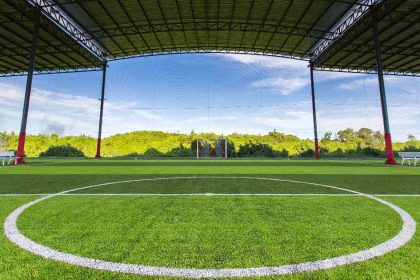The New South Wales Council of Deans of Education (NSWCDE), the peak body representing schools of education across the state, has delivered a new agenda for education research with its Grassroots Research Strategy.
Drawing on extensive and innovative consultations with 181 education leaders, teachers, academics, parents, children, and other stakeholders, the strategy maps a way forward for education research.
Six strategic research drivers are laid out, setting a clear focus on the most pressing issues in education, including teacher retention and attraction, inclusivity and accessibility, and climate change.
“We are proud to announce the successful completion of our Grassroots Research Strategy. This ground-breaking collaborative initiative aimed to co-create an education research strategy that resonates with the NSWCDE, the education profession, and its key stakeholders, including students in schools,” says Professor Mary Ryan, Executive Dean, Faculty of Education & Arts, Australian Catholic University (ACU).
As a peak body of Deans of Education, the NSWCDE activated this grassroots research agenda-setting project to respond to and challenge contemporary issues in education and to drive an innovative agenda for educational research. The focus was to identify new and enduring research priorities.
The project delved into critical issues confronting education, such as teacher attraction and retention, inclusivity and accessibility, and the pressing matter of climate change. By embracing these critical topics, the Grassroots Research Agenda-Setting project highlighted the urgency of addressing them through imminent and forward-looking education research.
The outcomes of the project crystalised into six strategic research drivers, which now form the nucleus of the education research agenda:
- Determining Education for Who and What: Establishing the scope and purpose of education in a rapidly evolving landscape
- Authentic Explorations on Inclusivity and Accessibility for All Learners: Addressing the imperative of providing equitable educational opportunities for all students
- Climate, Country, and Education as a Pressing Contemporary Assemblage: Responding to the challenges posed by climate change and the environment
- High-Quality Education in Contemporary Times: pioneering innovative methods and approaches to education in the digital age
- Attracting and Retaining Successful, Motivated, and Capable Teachers: Cultivating a flourishing teaching workforce
- Effective, Relevant, and Attuned (Quality) Teacher Education: Elevating the standards of teacher education.
Inclusive education research approach is needed
“This ambitious undertaking aligns with the broader context of education research in Australia,” says Professor Ryan. “While various educational bodies, such as the Australian Association for Research in Education (AARE), Australian Education Research Organisation (AERO), and the Australian Institute for Teaching and School Leadership (AITSL), have been instrumental in advancing research agendas, the Grassroots Research Agenda-Setting project highlights the need for a more comprehensive and inclusive education research approach.”
A diverse group of participants comprising regional and metropolitan principals, deputy principals, teachers, academics, curriculum and policy writers, departmental and independent sector representatives, parents/guardians, and children and young people joined forces to shape the project’s trajectory. Through a series of dynamic ‘Transdisciplinary World Cafes’ conducted both in- person and online, participants responded to thought-provoking questions designed to catalyse discussion and stimulate data collection and analysis.
“By building this research agenda with six strategic research drivers for and with education, the NSWCDE seeks to initiate local and national conversations, aiming to shape state and national education research agendas and concomitant policy,” Professor Ryan says.
Social justice matters
There was a strong focus on social justice throughout each world café, identifying the need to consider and include supporting the diverse needs and perspectives beyond dominant norms and ensuring safe educational spaces for all. Importantly, equity and discrimination are seen as the second most important issue of concern for young people in Australia by 18,800 participants in the most recent Mission Australia Youth Survey.
The inclusion of Aboriginal and Torres Strait Islander people’s culture and knowledges was noted as particularly important.
The Australian Institute for Teaching and School Leadership (AITSL) instigated a focus on improving sensitivity to cultural diversity in schools regarding Indigenous perspectives, with a 2020 discussion paper to consult the community about enriching the Indigenous cultural competency of teachers.
The paper highlighted the importance of taking a culturally sensitive approach to education:
“We were so grateful to our stakeholders for engaging in this process so willingly and we appreciated their frank and constructive comments about education and education research in NSW,” Professor Ryan told EducationDaily.
“By building this research agenda with six strategic research drivers for and with education, the NSWCDE seeks to initiate local and national conversations, aiming to shape state and national education research agendas and concomitant policy.”







